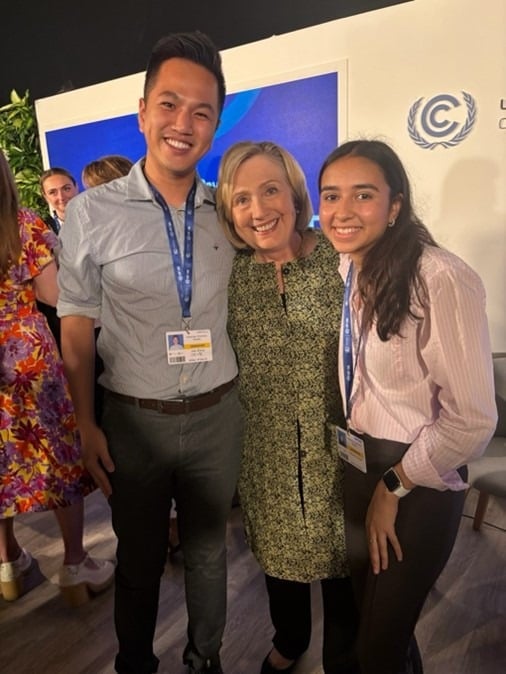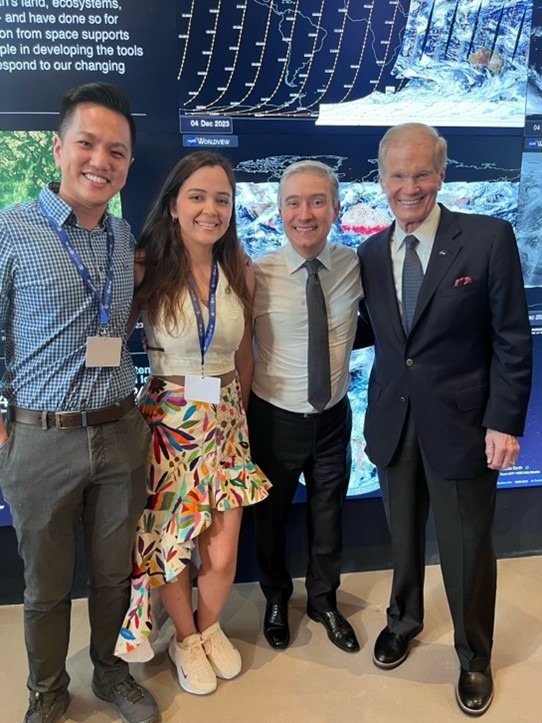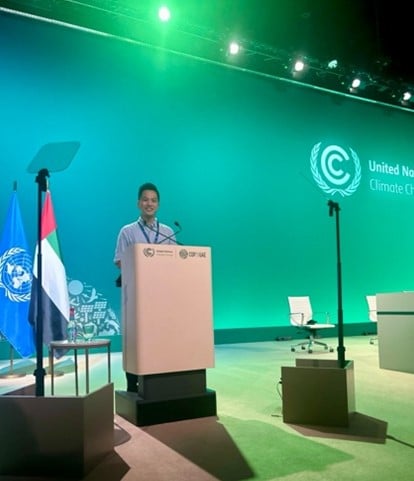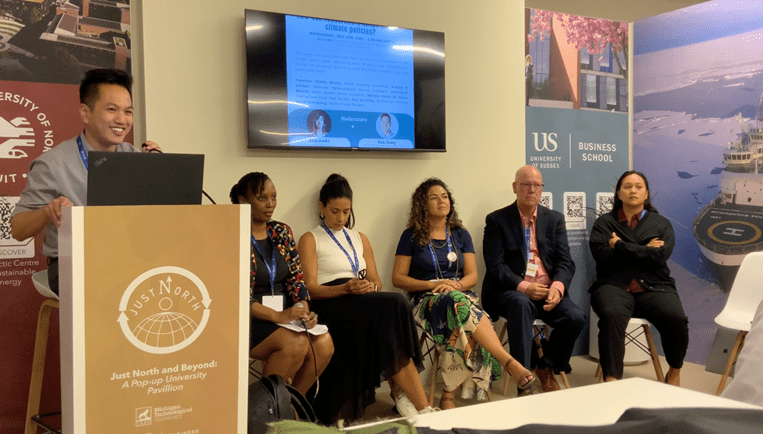Nick Zhang is a fourth-year PhD candidate in the Department of Materials Science and Engineering whose research focuses on electrochemistry for carbon utilization and whose career plans include working in public policy related to climate change and sustainability. Earlier this month, with the support of his department and the Ralph O’Connor Sustainable Energy Institute (ROSEI), Zhang traveled to COP28, this year’s U.N. climate summit in Dubai, as a student representative of the American Chemical Society (ACS).
Zhang will speak about this “transformative” experience at the ACS Conference in March 2024 in New Orleans. He recently shared some of the trip’s highlights with us.
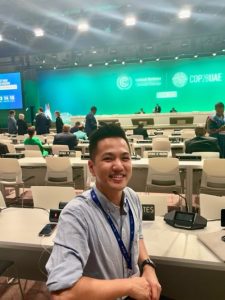
Nick Zhang
Q: How did you become interested in attending COP28 as a student representative?
A: This all started with someone in my ACS network sending me an email about the opportunity. ACS has been sending delegates to COP events since 2010: roughly five to 10 students from the US are chosen to go. We went as researchers and independent NGO observers (RINGOS). It was an exciting event as we got the chance to see firsthand how climate policy comes to fruition.
Q: What was the experience like? Any personal highlights?
A: This year’s COP was in Dubai which I was excited about because I had never attended COP nor traveled to the Middle East before, and I got to spend 10 days there. In terms of personal highlights, I co-organized and spoke at a few panels with researchers from across the world. I was able to attend few actual negotiations to see how policy is being made and how different countries interact with each other to get deals done. I was able to attend high-level meetings with over 30 presidents/prime ministers pledging their countries climate goals, as well as U.S. leaders on climate change including Hillary Clinton, John Kerry, Bill Gates, and Al Gore, and Bill Nelson. In general, it was a major highlight when I get to listen many climate initiatives getting announced and interact with key stakeholders who shape our future climate policies.
Q: You co-organized, moderated, and spoke at “COP28 Early Career Researchers/Climate Scientists Panels.” What was discussed at the panel, and were there any topics that you found illuminating?
A: Many counties and independent groups had its own spot at COP, called pavilion, where they could host panels and showcase energy technologies. I was part of the organizing committee focusing on early career researchers, scientists, and professionals; and I aimed to explore ways to incorporate scientific research into the climate policy space. I’m interested in this topic because I am the vice president of the Johns Hopkins Science Policy and Diplomacy Group (JHSPDG) where I work on science policy and diplomacy projects at Hopkins and with foreign diplomats in D.C. These experiences made me want to organize something similar on the world stage.
A couple topics we discussed at our panel included carbon capture technologies being introduced into science policy and how health is related to the climate crisis. It was exciting to share the experiences I have had at Hopkins and listen to science policy experts from the US, Africa, and Europe to talk about ways to convey their research outcomes to policymakers as well as engage with the public.
Q: Were there any discussions related to your research that you found particularly informative?
A: One panel was about carbon capture storage and utilization technologies and how it has impacted community in developing countries. Speakers included William Ruto, the President of Kenya, and Bill Gates. They talked a lot about carbon technology implementation in African countries and how it worked financially. It was great to hear about actual projects happening in countries: researchers in communities working to innovate carbon technologies and then implementing them.
Q: How did JHU support your attendance at COP28?
A: I had to fly to Dubai and stay for 10 days, which is costly, so I spoke with leaders from the materials science and engineering department and ROSEI about being supported financially, and thankfully both agreed to help. I also got some financial support from the National Science Policy Network (NSPN).
This experience helped me grow professionally and it couldn’t have happened without the support from ROSEI, my department, and my lab’s principal investigator, Dr. Shoji Hall. That support has made me extra motivated to take the ideas and experiences I had from COP28 and bring them back to Hopkins. It also made me motivated to wave the Hopkins flag at COP28 and play up what we are doing as a school to tackle climate change. I wanted to make sure that people external to Hopkins know what the school’s and ROSEI’s missions, visions, and goals are for fighting climate change.

